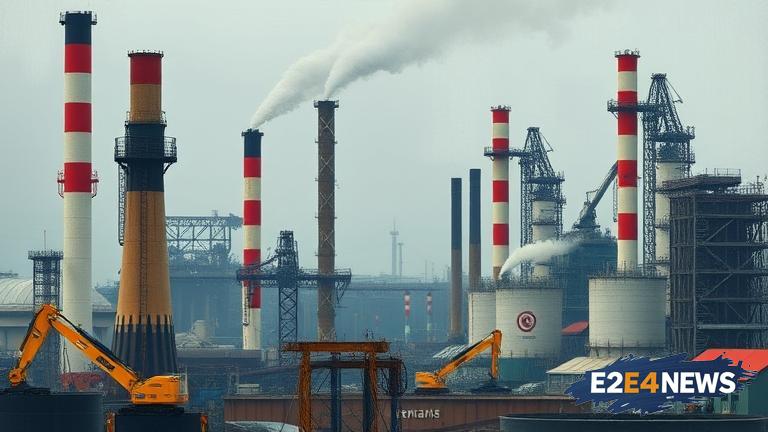Germany, known for its robust industrial sector, is facing a significant downturn, with a recent study indicating that the industry has lost nearly 250,000 jobs. This substantial decline in employment is a clear indication of the challenges the sector is currently facing. The study, which analyzed data from various sources, including industry reports and government statistics, found that the job losses are widespread across different industries, including manufacturing, construction, and logistics. The automotive sector, which is a significant contributor to Germany’s economy, has been particularly hard hit, with many major manufacturers announcing job cuts and production reductions. The downturn in the industry is attributed to various factors, including a decline in global demand, increased competition from other countries, and the ongoing COVID-19 pandemic. The pandemic has disrupted supply chains and led to a significant decrease in production, resulting in job losses and economic instability. Furthermore, the industry is also facing challenges related to digitalization and the need to adapt to new technologies, which is requiring significant investments and leading to job displacements. The German government has announced various measures to support the industry, including investment incentives and training programs, but the impact of these measures is yet to be seen. The job losses are not only affecting the industry but also having a broader impact on the economy, with concerns about the potential for a recession. The study’s findings are a cause for concern, and policymakers are under pressure to find solutions to address the downturn and support the industry. The industry’s decline is also having a significant impact on the country’s trade balance, with exports declining and imports increasing. The decline in exports is particularly concerning, as Germany’s economy is heavily reliant on exports. The study’s authors are calling for urgent action to address the downturn, including increased investment in research and development, improved infrastructure, and support for small and medium-sized enterprises. The German government has announced plans to increase investment in the industry, but the details of these plans are still unclear. The industry’s decline is also having a significant impact on the country’s regional economies, with some regions being more affected than others. The study’s findings are a reminder of the need for policymakers to take a proactive approach to supporting the industry and addressing the challenges it faces. The decline in the industry is not only a concern for Germany but also has implications for the broader European economy. The study’s authors are warning that the downturn in the industry could have a ripple effect, leading to job losses and economic instability in other countries. The need for urgent action to address the downturn is clear, and policymakers must work together to find solutions to support the industry and mitigate the impact of the job losses. The study’s findings are a call to action, and it is essential that policymakers take a comprehensive approach to addressing the challenges facing the industry. The industry’s decline is a complex issue, and there is no single solution to addressing the challenges it faces. A combination of investment, innovation, and support for small and medium-sized enterprises is needed to support the industry and mitigate the impact of the job losses. The German government must work closely with industry leaders, trade unions, and other stakeholders to find solutions to address the downturn and support the industry. The study’s findings are a reminder of the need for policymakers to be proactive and responsive to the needs of the industry, and to take a long-term approach to supporting the sector.
